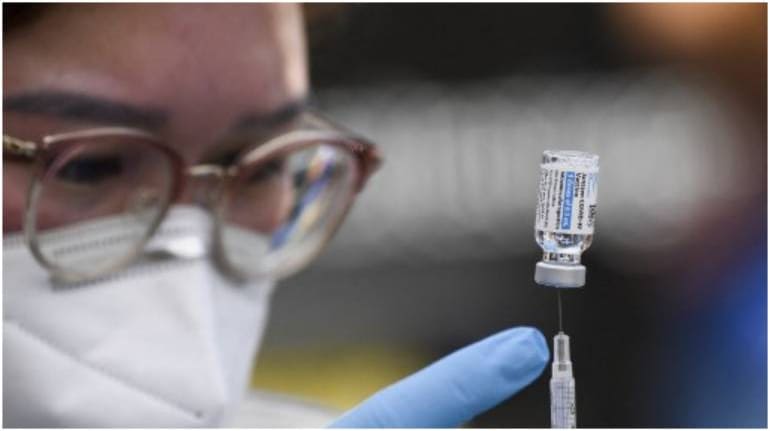



India will start administering the precaution dose of Covid vaccine to healthcare and frontline workers and comorbid people aged 60 and above from today in a bid to stymie the coronavirus spread driven by its Omicron variant.
Personnel deployed for election duty in poll-bound Uttar Pradesh, Uttarakhand, Punjab, Manipur, and Goa have also been designated as frontline workers.
Union Health Minister Mansukh Mandaviya, in a tweet on Sunday, said reminder SMSes have been sent to over one crore healthcare and frontline workers and senior citizens for their precaution dose.
An estimated 1.05 crore healthcare and 1.9 crore frontline workers, and 2.75 crore comorbid people in the 60 plus age group would be administered the precaution dose according to schedule, Health Ministry sources said.
There would be no mix-and-match of vaccines for the precaution dose. The beneficiaries would be given the same vaccine as their previous two jabs. According to guidelines issued by the Union Health Ministry, the gap between the date of administering the second dose of vaccine and the precaution dose would be nine months (39 weeks).
CoWIN will send reminder messages to all those eligible for this dose and after administration of the shot, it will be noted in the digital vaccination certificate. Online appointments for precaution dose began on the CoWin portal on Saturday evening. However, there is also the option of an onsite appointment and it will start on January 10.
"The government is ensuring the security of the health army that keeps the country secure. Reminder SMS have been sent to more than one crore health and frontline workers and 60+ citizens for their precaution dose. Appointments on COWIN are already open. Administering the doses will start tomorrow," Mandaviya said in a tweet in Hindi.
According to the Health Ministry, private hospitals that function as COVID-19 Vaccination Centres can inoculate their eligible staff members.
Those aged 60 years and above with comorbidities will not be required to produce or submit any certificate from a doctor at the time of administration of the precaution dose of vaccine. The countrywide COVID-19 vaccination drive was rolled out on January 16 last year with healthcare workers getting inoculated in the first phase. The vaccination of frontline workers started from February 2.
The next phase of inoculation commenced from March 1 for people over 60 years of age and those aged 45 and above with specified co-morbid conditions. The country launched vaccination for all people aged more than 45 years from April 1. The government then decided to expand its vaccination drive by allowing everyone above 18 to be vaccinated from May 1. COVID-19 vaccination for adolescents in the age group of 15-18 years commenced from January 3.
Discover the latest Business News, Sensex, and Nifty updates. Obtain Personal Finance insights, tax queries, and expert opinions on Moneycontrol or download the Moneycontrol App to stay updated!
Find the best of Al News in one place, specially curated for you every weekend.
Stay on top of the latest tech trends and biggest startup news.